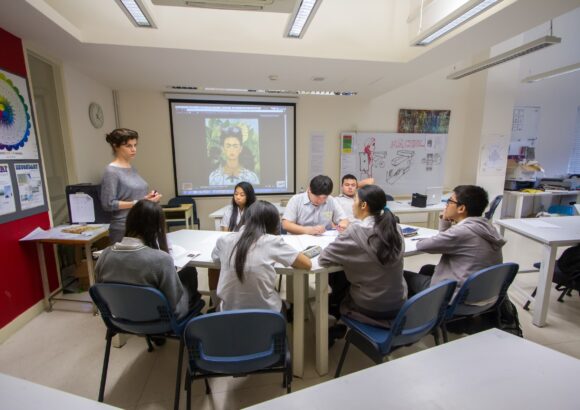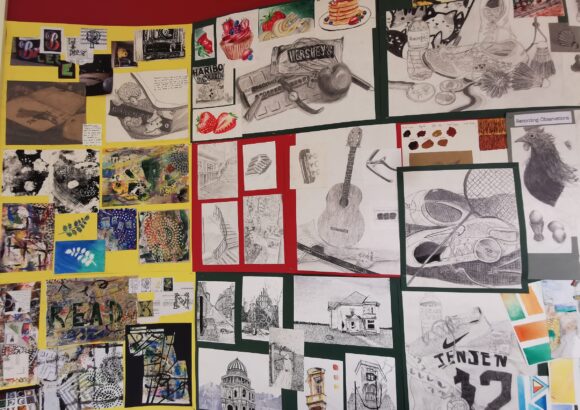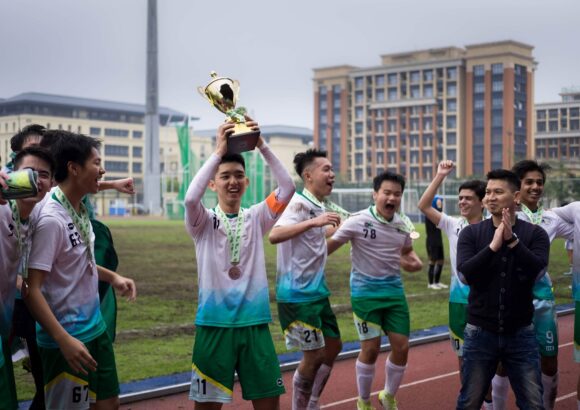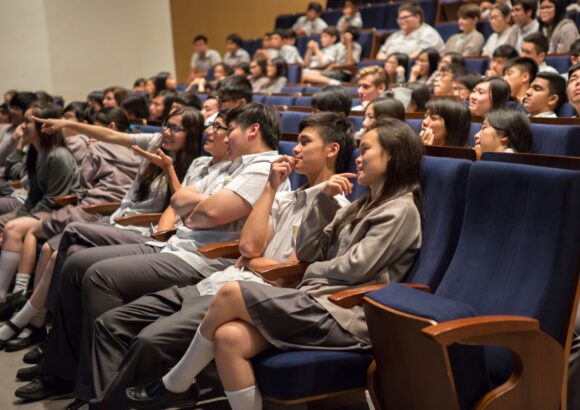“The environment at SON isn’t as competitive at other schools. It is more about your personal development for the direction you want to go in, instead of the environment pushing you all the time.”
Secondary
Vision of Adolescence
Students enter adolescence, also known as youth, in Secondary school. This is a period of life characterized by blossoming capacities, strength and vigour.
Youth have many wonderful powers, and channeling them properly is an important concern, for when misdirected or manipulated by others, it can cause much social distress. We believe youth possess great potential to bring about constructive change and have an expanding capacity for meaningful service. Their sense of purpose and thirst for knowledge finds expression through greater ownership of their learning and growth. They are often eager to arise to take responsibility for the development of those younger than themselves—and do so capably.
Secondary Programme
In line with this vision, our secondary programme aims to assist students to further develop their intellectual capacities along with the qualities, attitudes, and understandings that will enable them to make growing contributions to society.
Through rigorous academic training spanning a variety of subjects, they are prepared to succeed in internationally-recognized IGCSE exams, the IB Diploma Programme, and their further studies.
Students also receive training and opportunities to engage in meaningful service as mentors of groups of junior youth within and outside the school.
IB Diploma Programme
School of the Nations was the first IB World School in Macau and we provide our students with both the Full Diploma track and the Certificate track of the IB Diploma Programme, depending on individual needs. Form 5 and Form 6 are the two final years of the Secondary programme at School of the Nations. All students study in the International Baccalaureate (IB) Diploma Programme during these two years. This programme is designed as an academically challenging and balanced programme that prepares students, typically aged 16-19, for success at university and life beyond.
Cambridge IGCSE
The Secondary programme begins at initially to Form 3 and Form 4 with the Cambridge International General Certificate of Secondary Education (IGCSE). The IGCSE is the world’s most popular international qualification for 14 to 16 year olds. It develops successful students, providing excellent preparation for their next steps in education, including progression to higher level study or immediate employment. The Cambridge IGCSE is recognised by schools, universities and employers worldwide. In addition, it is one of the prerequisites of the IB Diploma Programme at the School of the Nations. School of the Nations is the first Cambridge International School in Macau administering the Cambridge IGCSE and A-Level Examinations under the Cambridge Assessment. Cambridge Assessment provides these qualifications to develop students’ skills in creative thinking, enquiry, problem solving, and to give them excellent preparation for the next stage in their education. Students typically take the examinations and coursework for 8 to 9 IGCSE subjects by the end of Form 4. The school currently offers the following syllabi to the Form 3 and Form 4 students:
- English Literature
- First Language English
- First Language Chinese
- Chinese as a Second Language
- Foreign Language: Mandarin Chinese
- 數學
- Global Perspectives
- Biology
- Chemistry
- Physics
- Computer Science
- Art & Design
- Drama
- Music
Beyond the Classroom
Serving as METL Animator
In Forms 3 and 4, students are trained and supported to serve as mentors to groups of middle school students.
Through the Moral Empowerment through Language (METL) Programme, they assist the middle school students to study and discuss meaningful themes such as the purpose of life, making persistent effort towards noble goals, and maintaining hope in the face of difficulties, and explore together opportunities for service to the community.
Creativity, Activity and Service
In Forms 5 and 6, students participate in the Creativity, Activity and Service (CAS) element of the IB Diploma Programme. Through CAS, students have the opportunity to design and carry out their own activities in the areas of the arts, physical activity or service.
Some students carry out their service as mentors of groups of junior youth through the METL Programme.



